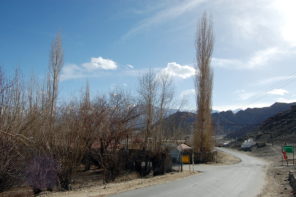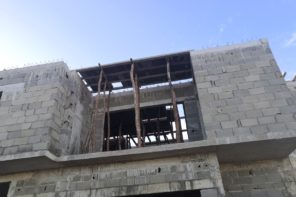As an established blog with personal and institutional contacts to many of those involved in the recent upheaval at HAU and the Society of Ethnographic Theory, we do not have the choice of simply not participating in the debate at this point, even if this might appear as a wiser path to some. Having let some time pass, we decided to offer Allegra as a platform to a number of voices for discussing bigger issues at the intersection of anthropology, open access, power, institutions, and information/transparency.
Over the last days, we have discussed these recent events via email and skype. This has been far from ideal – but some of us are in the field, others on the road, and yet others to be interviewed for jobs in order to leave behind the very precariousness that is at the heart of #hautalk.
In the course of our discussions, we have focused on particular aspects of the debate while side-lining others. We have also had profound disagreements at times on what we might want to do about it all.
What we agree on, and want to put at the centre of this introduction, is that we need to listen to the people who have come forward. The people who have been hurt, harassed and victimized. Even as we lack detail, even as the people stay anonymous, what we hear is coherent and plausible enough for us to believe in: something went very wrong here, and not just once, but systematically. We want to help to create an anthropology where such abuse will neither be tolerated nor possible in the future.
Understanding the structural causes and the dynamics of exploitation, marginalization and power in the academia – see for example Bourgeois knowledge, the #university crisis, the MPI chiefdom, and the politics of silencing – is central to our mission. We intend to continue these reflections with the upcoming posts of this week.
In addition to such more systemic thinking, however, we want to acknowledge the current concrete allegations of abuse that cannot be tolerated.
To address our own ‘complicity’ here: As a platform and as individuals, we have been entangled with HAU. At conferences, we have shared booths and organized joint parties; we have boosted each other’s social media; we have seen both Allegra and HAU as important vectors that supported open access scholarship and European voices (among others) in a largely US-centered discipline.
Why did we not disassociate ourselves more strongly – even though one of our editors had first-hand experience of what it is like to work with HAU? Where to draw the line in the face of wide-reaching precarity? What happens if you opt out of the academic ‘prestige economy’? The problem of complicity with power seems hard to escape.
Focauldians might invoke the paradox of subjectification: “The moment at which we attain status as subjects (the subjects of our thoughts, words, and deeds, and subjects in our relations with ourselves and others) is also the moment of subjection in which we become subjects to a set of rules, norms of behaviour, and to definitions, boundaries and exclusions already imposed on the discourse in which we assume a subject position” (Hafstein 2014: 49).
Yet this suggests that we had little choice in the matter, and this does not sit comfortably with us either. We tolerated this ambiguous situation and ignored what we did not like instead of actively cutting all ties. Of course, we also stood impressed by the sheer output of HAU – and by their very prominent backers, who we wished not to antagonise openly. This ambivalence regarding our own position contributes to our motivation to currently engage with the topic.
We have noted that discussions – i.e., #hautalk – have predominantly taken place on Twitter and Facebook, where people are outspoken and emotions run high.
To complement these voices and the (fewer) blog posts that have been appearing over the last few days (e.g. here , here, and here), we have approached colleagues who have engaged constructively in this debate or who we thought might be able to contribute something significant to the underlying, systemic issues that have brought us to this point. We believe this debate is complementary, and definitely not alternative, to more contingent calls for action and change.
Each of us will take sides in this story as it unfolds. What we want to make explicit again here is that Allegra will always stand on the side of those who have been hurt and exploited.
And while the events currently unfolding around HAU have given us reason to take a look in the mirror and acknowledge our tacit complicity in the conspiracy of silence that enabled abusive behaviour to go on unchecked, we feel privileged to be trusted as a platform to host a part of the discussion.
This in a way validates our approach: we remain independent, characterised by a collaborative, collective (and sometimes chaotic) editorial and management process which prevents the kind of centralisation of control and potential misuse of funds that seems to have been so detrimental to the project of HAU.
We have lined up a series of posts from both junior and senior colleagues from Europe as well as the US. We have tried to be inclusive, casting the net widely and approaching more people than eventually agreed to contribute. Not everyone was willing to write at this point, and some who wrote decided to withdraw their pieces again – which is fine. Should you be inspired to contribute to the debate we hope to open up, please approach us (submissions@allegralaboratory.net).
Literature cited:
Hafstein, V. 2014. Protection as dispossession. Government in the vernacular. In: Cultural heritage in transit. Intangible rights as human rights. University of Pennsylvania Press, 25-57.








